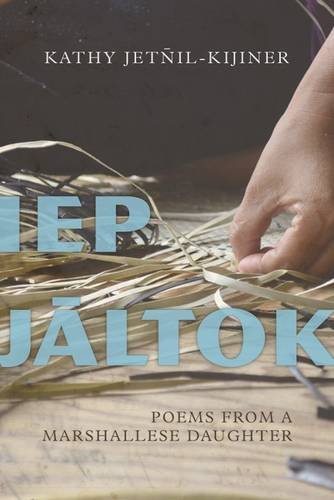A few weeks ago I was called into the office of the President of the College of the Marshall Islands (CMI) Carl Hacker, to discuss his big announcement: that he would be pushing for CMI to divest from fossil fuels. All we need next is approval from the Board of Regents, which could possibly happen within a few weeks. “It only makes sense,” he said simply. “If we don’t – who will?”
This was the same question I asked when I conducted training on divestment for student leaders from the Student Body Association (SBA), Peer to Peer, and the Environmental Club here at CMI, just a week after my conversation with the President. The training was led by me and the Vice President of the College, William Reiher, who gave a presentation on renewable energy and the different ways in which we as an institution have been leading in that field as well.
While our islands may seem small, businesses for the banks here is profitable and growing. It’s a moral imperative that as banks continue to grow in the region they must side with the people, not the polluters. About 28 trillion dollars are invested in the fossil fuel industry – and it’s this money that is going towards buying out politicians and funding climate deniers. What so many people don’t realize, is that a lot of that money is our own money.
So during my divestment training, I stood in front of student leaders here at CMI, and I told them what I’ve recently realized. That our college must join this movement. The recent IPCC report says that by 2050 global electricity needs to be low-carbon, and that to get right on track, the world would have to cut fossil fuel investments annually between now and 2029, and use that money for renewable energy.
With all this looming on the horizon, CMI is in the perfect position to take that step to divest. CMI is the only college of the nation – we are teaching and shaping the next leaders of our country. Leaders who will have to deal with either a harsher climate reality than the one that exists now, or a future of transition and change from fossil fuels to greener energy. They are the ones who will inherit the future of these islands – they need to understand the fine print on the warning label.
And we’re hoping it won’t just be our college divesting. This move is triggering and connected to the launch of the Pacific Divestment Campaign, being supported by the Pacific Climate Warriors of the 350 Pacific network (350pacific.org). Universities, colleges, organizations, and financial institutions, such as ANZ management, must align their money with their morals. They need to make socially responsible investments because it’s completely unacceptable for them to make profit off the destruction of our islands.
Students in the Pacific especially need to come together and take an active role in this movement. Historically, college students have always been the leaders of major social movements. And this – the climate struggle – this is in our backyard – this our islands. This is the fight of all students in the Pacific.
After the divestment training, the SBA announced that they will be hosting a “Divestment Spirit Week” this coming week. I am so proud of these students for taking this initiative on their own to raise awareness amongst their fellow students. Among the activities will be classroom presentations on what divestment means, an essay and poster contest, a painting of a mural, and activities for each day of the week. “This is a really important and critical step not just for our college, but our country as well, in trying to protest against some of the major contributing factors to climate change,” they wrote in an email to the student body. They are taking the next step – and hopefully our Board of Regents will listen.
So this is a shoutout from CMI to the rest of the colleges, universities, and organizations around the Pacific to join us in this movement, and to take that next step to divest from fossil fuels. I mean hey – if our students can demand divestment from their institution, yours can too.





Are there any on-line courses to learn Marshallese?
Unfortunately there aren’t any at this time. Will let you know as soon as there is.
thank you
Besides monetary support, are there any other ways or actions we, as Marshallese, Micronesian, and environmentally conscious citizens, can take to participate here in the United States?
Hi jpyfer85 thank you for your question. I think the best way is to raise awareness on climate change, and our struggles in the Pacific. If you or anyone you know are part of any organizations, like church groups, youth groups etc, one way is to give presentations on the effects of climate change. Have them join global campaigns like on the website 350.org. If you visit that website, there are petitions you can sign to show your support, you can even take photos with your friends and family holding signs saying you support climate change awareness. If you do a little research on the website, they give very specific instructions on how to join their movement. Right now me and my organization Jo-Jikum (www.jojikum.org) we work very closely with 350.org’s efforts so they’re a great place to start.